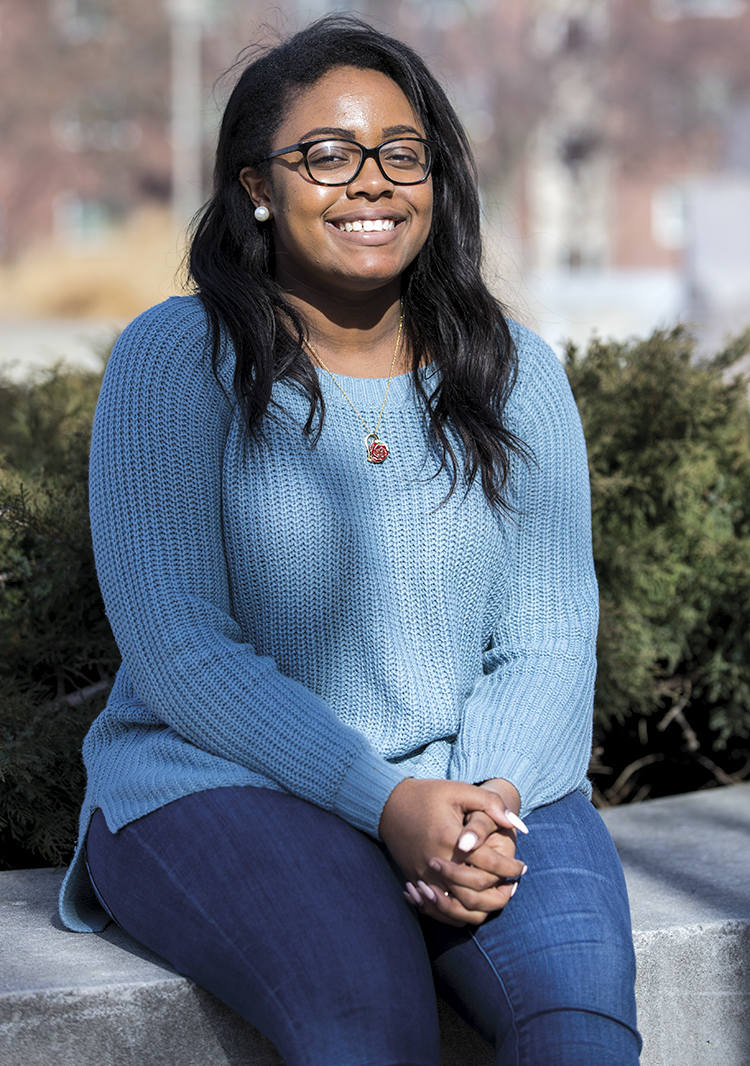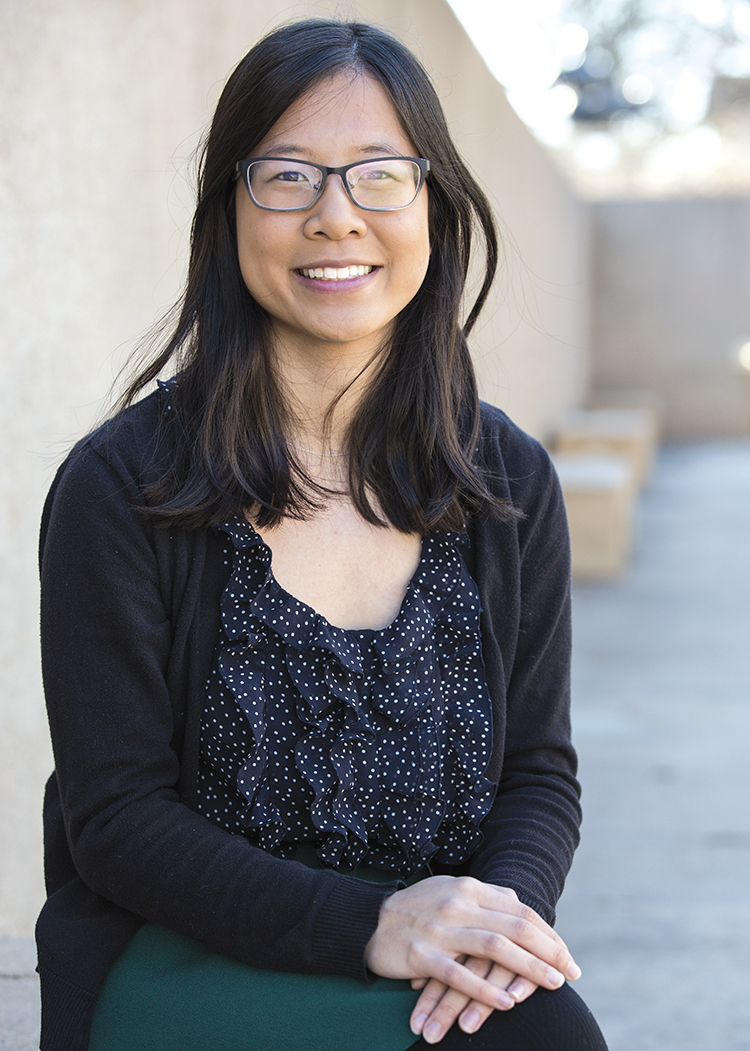

At a fraternity party in 2012, an African-American student at the University of Nebraska-Lincoln was denied entrance when he approached the door.
Years later in a press conference on Sept. 26, 2016, Michael Rose-Ivey, former linebacker for the Nebraska Cornhuskers, recalled his experience with the university’s Greek system.
“My freshman year, I remember going to a frat party and was told, ‘N-----s are not allowed in this house,’” he said. “We were escorted out several minutes later by security.”
Rose-Ivey, who did not respond to The Daily Nebraskan’s request for comment, did not specify which fraternity this incident was associated with during the press conference.
Issues with diversity and inclusion have been prevalent even today on college campuses throughout the United States, including at UNL.
In 2012, Rebecca Carr, a former UNL employee, noticed a group of young fraternity men marching past Seaton Hall, waving a Confederate flag and shouting “The Star Spangled Banner.” The procession was part of the fraternity Delta Tau Delta’s philanthropy, M*A*S*H*, which raises money for families who serve in the armed forces.
According to Carr, she received harassing calls and harassment over social media for reporting the incident to the fraternity’s national organization.
“They apologized, listened to my perspective and the reasons I was concerned and delivered a letter of apology from the student who carried the flag,” she said in an email. “They were very sincere and humble and I much appreciated that gesture on their part.”
Ayat Aribi, external vice president of the Association of Students of the University of Nebraska for the 2017-18 year, said she does not have interest in the topic of racism simply because of her role as external vice president or former chair for ASUN’s Committee for Diversity and Inclusion.
Rather, she said she approaches the issue from a personal perspective because she has experience dealing with issues pertaining to race and inclusion.
“I don’t say anything unless I know what I’m talking about,” Aribi said.
While Aribi did not have any specific stories pertaining to UNL, she mentioned an incident involving Rini Sampath, former president of the University of Southern California’s Undergraduate Student Government and an unidentified fraternity member.
In September 2015, Sampath was walking from a friend’s apartment and the fraternity member leaned out his window to shout an offensive slur at her regarding her ethnicity. The fraternity member apologized, but Sampath did not accept it.
According to Aribi, the apology showed the fraternity brothers knew better. She said although not all white people are racist, they can engage in racism by not saying anything in situations where someone is being attacked or ridiculed because of their skin color.
“They participate in the system every day by their silence and it’s not that they’re racist, it’s that the implications are much more grotesque when you have a white person saying, ‘I’m not racist and it wasn’t me,’” she said. “You’re so good at saying, ‘It wasn’t me,’ but what are you saying to the people who did do it?”

For Kendall Dawson, vice president of the Afrikan People’s Union, the lack of multicultural Greek houses when she arrived at UNL in 2015 was shocking.
Dawson said she thought of joining a traditional, predominantly white, sorority, but was discouraged to not see any other women of color in the house.
“Everyone [at the sorority] was super sweet and everything, … [but] they have a big picture of all the girls in [the house,] like in any Greek house, but there was like two black girls … out of like hundreds of girls and I’m like, ‘OK, I don’t want to be number three,’” she said.
According to Tami Strickman, assistant to the chancellor and Title IX coordinator, the Greek community at UNL is 88 percent white, while the undergraduate population is 71 percent white.
The demographics for the Greek community during the 2017-18 school year include 3,777 white members, 206 Hispanic members, 73 Asian or Pacific Islander members and 45 African-American members.
“I feel like having a multicultural Greek house would be a step in the right direction, but I also, at the same time, feel like students of color should feel more welcome in the traditional Greek system,” Dawson said.
Steve Smith, now former spokesperson for UNL, said the school and the Greek system had been working on diversity long before he worked at the university.
“We know that as a university, diversity is our strength,” he said.
Smith said as a school, UNL has a special responsibility and opportunity to address some “ills of the greater society.”
“We try to work on creating a more diverse community,” he said. “We feel generally that those efforts have been successful.”
Smith said UNL is working toward becoming more diverse, but it is a work in progress.
“And you know, are we where we want to be? Is anybody?” he said. “Probably not, no. Can we do better? You bet.”
Despite being vocal about racial diversity, a pamphlet from UNL’s Office of Fraternity and Sorority Life only offered information about the National Pan-Hellenic Council and the Panhellenic Association.
There is a list of questions and answers listed in the pamphlet, ranging from how to join a chapter, what to wear during recruitment week, being an athlete in the Greek system and the GPA required to join a house.
The pamphlet also has a short paragraph about UNL’s Greek community being inclusive in regard to sexual orientation, gender identity and expression, but offers no information about the system being racially inclusive.

Tiffany Truong, senior biochemistry and chemistry double major, said she was hesitant to do formal recruitment with Panhellenic because of its lack in shared cultural values.
“I saw all the amazing things that they do in terms of philanthropy, community service and building relationships with people,” she said. “But for me, the organization is not focused on the values that I wanted to have when I was in college.”
Truong is currently the president of Asian sorority Sigma Psi Zeta. According to her, the sorority encompasses both her value of culture and family.
“I do feel like Panhellenic and IFC are inclusive as they are, but it’s nice to have another option for people that aren’t comfortable joining a huge organization or they’re not familiar with their traditions,” Truong said.
Sigma Psi Zeta is currently the only Asian-interest sorority in Nebraska, which Truong said is something its members take pride in. The sorority aims to spread Asian culture on campus and give members of the Asian community a place to reside in.
“Having girls around you that look like you, understand what you’re interested in and what you’ve been through growing up is very comforting,” Truong said. “Especially at a predominately white institution where people around you may not understand your family or culture.”
According to Truong, the only experience of racism she has faced is confusion about her native origin, as people mistake her for being Chinese, Taiwanese or Japanese, when she was actually born in Nebraska.
“It’s not a problem to me because it’s an opportunity for me to educate them on where I’m actually from,” she said. “I think more dialogue about all the different cultures on campus would be helpful so that less instances like that will happen.”
Tanner Nguyen, junior management major, reminisced on his own experience as an incoming freshman during Greek recruitment, and why he chose Lambda Phi Epsilon, an Asian-interest fraternity, over other traditional houses.
“It wasn’t because I didn’t like what other fraternities stood for,” he said. “I joined mine because I could be my most authentic self and I can lean on my Asian-American background.”
Nguyen was elected as president of the Multicultural Greek Council in late November 2017. In his position, he looks over four multicultural Greek chapters and organizes socials between them.
“The Multicultural Greek Council is different from a traditional fraternity or sorority because it finds the home for the specific niche that you want,” he said. “We balance that by working with them and getting their ideas and letting their voice be heard on campus.”
Strickman highlighted the history of multicultural interest chapters and mentioned they were originally formed in an effort to secure multicultural student voices on campus.
“Historically, African-American Greek letter organizations began on predominantly white college campuses as means to provide support to African-American students,” she said. “This was during a time when many colleges allowed students of color to attend classes, but were not as open to students participating in all aspects of student life.”
When informed about previous incidents of racism involving members of UNL’s Greek system, Nguyen highlighted that “a couple bad students don’t make the Greek community bad as a whole.”
He said he believes UNL is becoming a leader with its creation of Greek Vitality, which aims to improve relationships between all Greek councils and chapters. An example of this includes the MGC becoming a recognized council by both the IFC and Panhellenic Council.
“Getting the councils in a room together once a week is a big step,” Nguyen said. “It speaks volumes when you just invite people to things.”
Dawson said MGC’s recognition is a step toward more interaction between traditional and non-traditional Greek houses.
Dawson mentioned a Delta Gamma sorority member who repeatedly attended Dish It Up, an event about controversial topics on campus, at the Jackie Gaughan Multicultural Center.
Dawson said the member, who was white, did not need to attend the event, but it was a “sweet” gesture on her part.
“I feel like that could almost go the other way,” she said. “So, if the Afrikan People’s Union were to do something with the traditional sororities and fraternities, I feel like that could also be a really good thing.”
According to IFC President Jackson Grasz, only the council and Panhellenic chapters have participated in the spring celebration of Greek culture, known as Greek Weekend. In an effort to promote diversity and inclusion among Greek chapters, they extended the invite to MGC as well.
“The more interaction we can encourage between Greek members of the different councils, different chapters within those councils … that’s one of the most immediate and effective ways we can promote diversity,” Grasz said.
Grasz highlighted that diversity is an important factor for IFC, but clarifed it is different for each chapter.
“We have statistics on it but we don’t go out of our way to push that on chapters,” he said. “Diversity is up to the individual chapters, but collectively as a community, we encourage diversity.”
According to Grasz, IFC is one of the largest councils at UNL, as it consists of the most active chapters. Although MGC continues to grow, some students are concerned that its small size affects its credibility on campus.
“It’s an expectation that people of racial demographics should feel welcome in any of
our chapters,” Grasz said. “But I would never want them to feel like they need to be in an IFC chapter or else they aren’t a real Greek because we have some of the larger houses.”
Despite previous acts of racism involving UNL Greek members, Grasz said he currently does not see diversity as an issue among the councils nor as an issue in the Greek community as a whole.
“We have over 4,000 Greek students at UNL that make up over 20 percent of our student population,” he said. “I think, inevitably, individual incidents are going to occur with individuals and it’s unfortunate that it does happen though.”
Grasz said the councils are working to unite UNL’s Greek community, in hopes of diminishing incidents of racism and discrimination in the future.
“We are pushing things like Greek unity and Greek Vitality to remind everyone that we really are a whole community,” he said. “If people in the Greek community don’t feel like that right now, then that’s what we’re striving toward.”